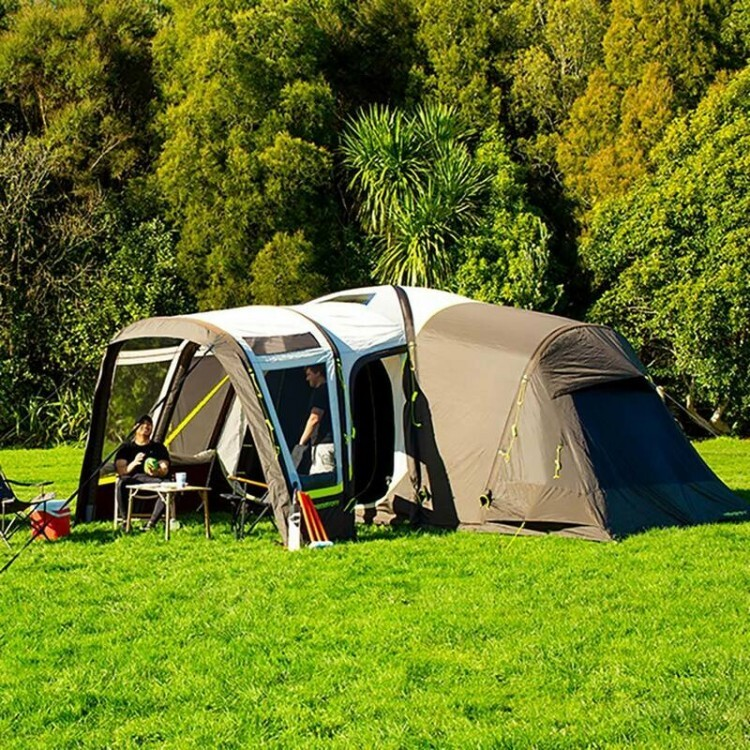
When it comes to camping, there’s nothing quite like spending a night under the stars, nestled in the embrace of nature. And while the appeal of sleeping in a traditional tent is undeniably classic, inflatable tents have gained popularity in recent years. These innovative structures offer a unique camping experience, but are they really worth the hype? In this article, we will compare the pros and cons of inflatable tents and traditional tents to help you decide which option is best suited to your camping needs.
Let’s start by exploring the exciting world of inflatable tents. This design offers several advantages, especially for campers looking for convenience and ease of set up. One of the standout benefits of inflatable tents is their quick and hassle-free pitching. With most inflatable tents, you can simply attach an air pump and watch your tent rise like magic, taking shape in a matter of minutes. No more wrestling with poles and trying to decipher complicated assembly instructions. Inflatable tents are a game-changer in terms of time-saving and stress-free camping.
Additionally, inflatable tents are incredibly sturdy. This means that even in adverse weather conditions, you can rest assured that your shelter will remain intact. Traditional tents, on the other hand, rely on poles that can sometimes bend, break, or become misaligned, compromising the structural integrity of the tent. Inflatable tents eliminate this concern, providing campers with a reliable and secure camping experience.
Another advantage of inflatable tents is their spaciousness. The unique structure of these tents allows for increased headroom and more usable living space. Traditional tents often have sloping walls, limiting standing room and making it difficult to move around comfortably. In contrast, inflatable tents provide a more open and airy environment. This is particularly beneficial for families or larger groups who may require extra space for activities, storage, or simply to enjoy a relaxed camping experience.
Inflatable tents also offer superior insulation. The air-filled beams act as natural insulators, providing better temperature control inside the tent. This means you can stay cooler during hot summer nights and warmer in chilly conditions. Traditional tents may lack this insulation feature, making them more susceptible to temperature fluctuations. So, if you’re seeking ultimate comfort regardless of the weather, an inflatable tent may be just what you need.
However, it’s important to note that inflatable tents do have a few drawbacks. The most significant concern is the potential for punctures or leaks. If a puncture occurs, it can be challenging to repair the damage in the middle of a camping trip. However, it’s worth noting that advancements in inflatable tent technology have significantly reduced the risk of punctures, with many manufacturers providing patch kits or even spare beams to address any unforeseen issues.
Another consideration with inflatable tents is their weight and bulk. Additionally, inflatable tents tend to take up more space when packed due to the air beams. This can be an inconvenience, especially if you have limited space in your vehicle or backpack. Traditional tents, with their collapsible poles, offer a more compact packing solution.
Now let’s shift our focus to traditional tents. These tents have been a staple in the camping world for decades and are beloved for their simplicity and reliability. One significant advantage of traditional tents is their availability. They are widely available in various shapes, sizes, and price ranges, making it easy to find the perfect tent for your needs and budget. In contrast, inflatable tents are still gaining popularity and may have limited options depending on your location.
Traditional tents are also known for their durability. Made from sturdy materials, they can withstand wear and tear over extended periods of use. Even if a traditional tent suffers minor damage, it can often be repaired quickly with a simple patch. This ensures that your investment in a traditional tent can last for years, providing countless camping memories along the way.
Furthermore, traditional tents offer a sense of nostalgia and connection to the camping traditions of the past. There’s something special about the process of pitching a traditional tent, connecting poles, and securing the guy lines. It gives a sense of accomplishment and a deeper connection to the camping experience. Traditional tents can evoke a feeling of adventure and authenticity that some campers find irreplaceable.